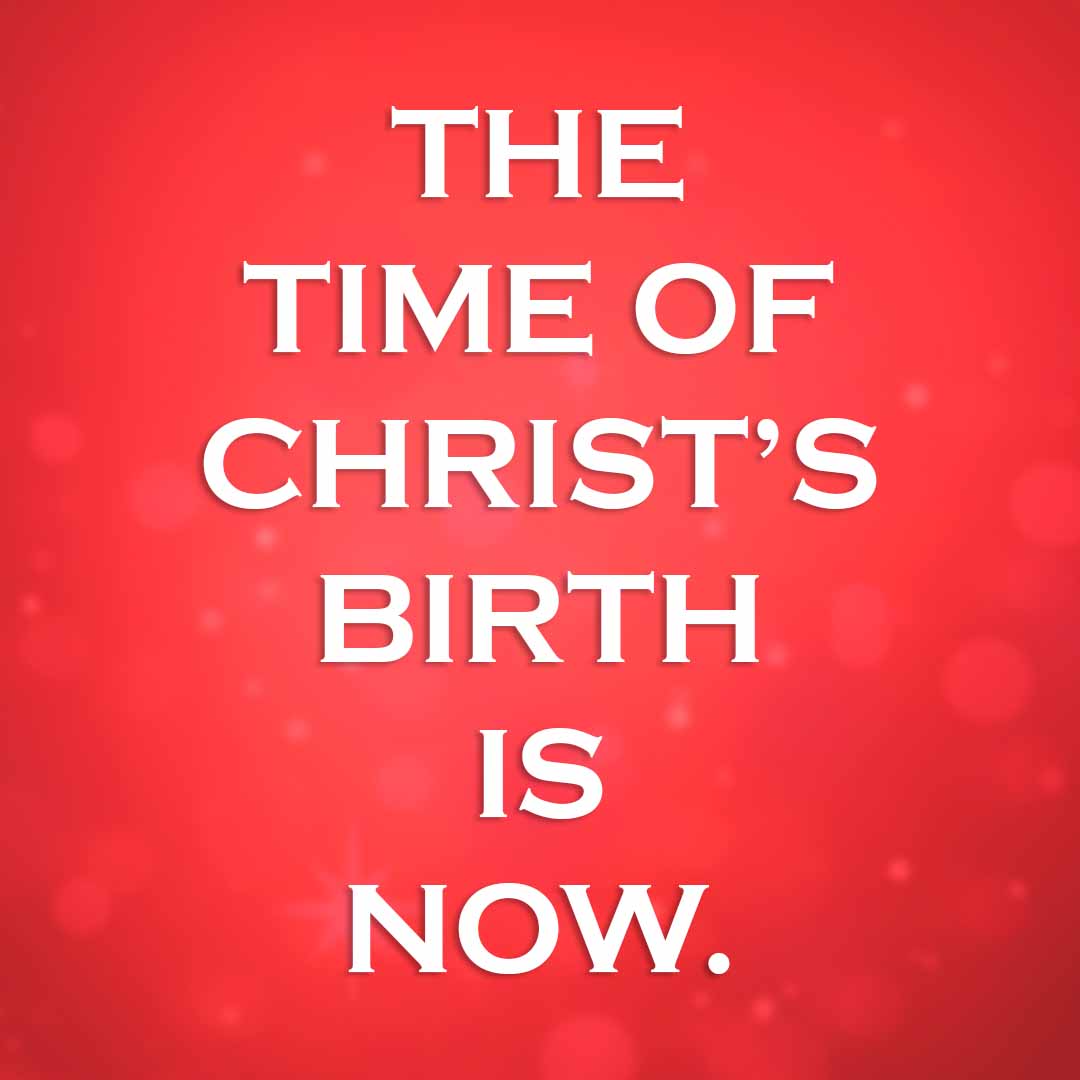We often think of the Nativity as the “first Christmas.” But was it? It depends upon what is meant by the word Christmas.
If we mean the birthday of Christ, then no other day is the first Christmas. But that’s not what the word Christmas actually means. It comes down to us from a Middle English term, Christemasse, the “Christ mass,” or Christ’s service of worship.
The Case for Celebrating Christmas on March 25
The Case for Celebrating Christmas on December 25
The Spread of the Christmas Tradition
Discussion Questions
But does that celebration fall on his actual date of birth? No one can know for certain. For hundreds of years, scholars have attempted to solve this puzzle. We do know that Jesus was born sometime around 4 B.C. (Yes, it’s surprising when we consider that B.C. means “before Christ”; the fact is that when our present calendar was first organized, an error of several years was made.)
Receive Daily Devotions from David Jeremiah
Sign up to receive email devotions each day!
The Case for Celebrating Christmas on March 25
Was Christ born “in the bleak midwinter”? Possibly so. A few interesting theories point to his birth on the very day we designate. Others, however, mention the fact that shepherds were keeping watch over their flocks by night, as Luke tells us. That would suggest a springtime date, although if these were Temple sheep, destined to be used as sacrifices, they would have been on the hillsides year-round. The early Christian leaders, living only a century or two after Jesus, honored the date of March 25, which they set as the vernal equinox—an important day for the farming-based ancients.
But why weren’t believers celebrating the birth of their Lord from the beginning? Official “holy days,” or what we now call holidays, tend to evolve only as they become set traditions. Besides, not all the early Christian leaders were in favor of institutionalizing their faith. Origen, an early theologian, spoke out against celebrating the birthday of Jesus in AD 245. Sinners, not saints, celebrate birthdays, he said.
But as the years passed, March 25 remained a focal point of the calendar. During the Middle Ages, this date emerged as the time for the Feast of Annunciation. That was a commemoration of Gabriel’s visit to Mary, telling her the wonderful news of Christ’s coming birth. Medieval and Renaissance painters loved painting this scene, with the magnificent angel standing before Mary.
The Case for Celebrating Christmas on December 25
As church traditions continued to be established throughout medieval times, people wanted to celebrate the Nativity itself. It stood to reason that such a day would fall nine months after Gabriel made his proclamation, which everyone connected with March 25. They did the math and came up with December 25, which was the winter solstice. Therefore December 25 became the traditional date for celebrating the Christ Mass.
Other factors influenced the connection between Christmas and December 25. The date was often used for Roman feasting and celebration. In the beginning, of course, Christians and Romans had little in common. But by the time of Constantine, those two designations became almost synonymous. In the West, Christianity was the “Roman Church.” It was inevitable that, just as Christian influences spread into Roman lands, Roman influences found their way into Christianity.
In the end, December 25 became just what it is today: a holiday that mixes the sacred and the secular. In Constantine’s time, there was celebration of the Roman god Mithras occurring as the birthday of Christ was observed; today, worship is in competition with the modern “gods” of sports and materialism. There is an undying tension between the Christian and the non-Christian elements that compete for our attention during the last month of the year.

On the other hand, we need not worry about Mithras; the worship of that god barely outlived the emperor Constantine. The old Roman and pagan festivals all passed away, too. In time, the name of Christ stamped itself upon the holiday: Christmas. Christian leaders decided to use this period of the annual calendar to emphasize that Christ was fully human and fully divine.
The Spread of the Christmas Tradition
By AD 336, there were Christmas celebrations in Rome itself. The Child, who had come so quietly into a stable in the Middle East, had conquered the capital of the world’s greatest empire in only three centuries. As each Christmas came and went, he would continue to move throughout the world, healing, teaching, and changing hearts. His voice would be heard and his ministry felt wherever his followers traveled. And indeed they traveled. Followers of Christ colonized the farthest reaches of Western Europe, then across the Atlantic to America, on to Africa and South America, into the heart of China and everywhere people live and need a Savior.
Today, on the twenty-fifth of December each year, you can hear Christmas carols being sung on every populated continent as the sun works its way from east to west. You will hear the carols in a thousand languages and dialects. The same, beloved Nativity story will be recounted over and over again, from the visit of Gabriel to the treachery of Herod. Children will portray shepherds and wise men. Television specials and magazine covers will ask again, “Who was the man from Nazareth who lived two thousand years ago, and who still inspires such love and obedience?” Just as those early church leaders desired, we will set aside this time to reason together about how God became human and how humans came back to God.
And yes, we would love to know exactly what day and what year marked the birth, what latitude and longitude marked the stable, what country of origin provided the wise men, what number of angels populated the skies, and what galaxy housed the star of Bethlehem. But upon further consideration, we realize that we know all we need to know. After all, the time of Christ’s birth is now, this very second, within each of us. He continues to smile upon us from the crude mangers of our souls every moment that we feel his love, and particularly when we give that love away.

And December 25? It’s as good a day as any. It’s a “together day” when we can feel all the world bowing as one before the King. But all the other days of the year are Christmas, too. That’s the measure of his great gift to us.
Discussion Questions
- What is your favorite Christmas tradition? Why?
- Does it matter to you that the actual date of Jesus’ birthday might be different from December 25? Why or why not?
For further study: Read Romans 5:1-11. List the many gifts that we receive because of our faith in Jesus’ nativity and his sacrificial life.
This article is an excerpt from David Jeremiah's book Why the Nativity? an exploration of 25 compelling reasons we celebrate the birth of Jesus.
You Might Also Enjoy:
• Why Was Jesus Born in Bethlehem?
• Prophecies Fulfilled by Jesus
• How Do We Know Jesus Is the Son of God?
• Why Did God Choose Mary?
• A Red-Letter Christmas Advent Devotional
• Understand Old and New Testament Prophecy
• 10 Bible Contradictions About Jesus Explained
• Why Do We Celebrate Christmas on December 25?
